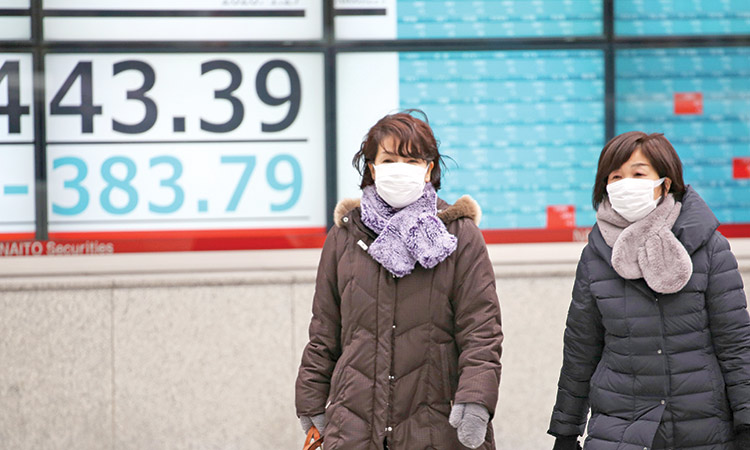

Picture used for illustrative purposes.
Most emerging Asian stocks rose on Tuesday after Wall Street rallied overnight, with the benchmark index in Taiwan hitting yet another record high, while currencies struggled for direction against a slightly firmer greenback.
Shares in Taipei rose as much as 1.3 per cent to hit an all-time high of 22,787.67 points, while those in Seoul, Kuala Lumpur and Singapore rose between 0.1 per cent and 0.8 per cent.
Global investors are looking to a slew of speakers from the Federal Reserve for more clues on the Fed’s rate-cutting trajectory, following last week’s decision to stay pat on policy.
The US central bank has now pushed the beginning of its rate-cut cycle to December, which could mean that its Asian counterparts will have to exercise discretion while easing their own policy stances.
Futures now point to roughly 45 basis points worth of Fed cuts priced in for the rest of 2024. At 0405 GMT, the dollar index, which measures the strength of the greenback against six major rivals, rose a tad to 105.39. Among emerging Asian currencies, the South Korean won and the Taiwan dollar were largely unmoved, while the Malaysian ringgit and Philippines peso inched slightly higher.
Meanwhile, in Thailand, the baht was flat, even as stocks rose, as investors awaited decisions to crucial court cases – including those involving the current prime minister Srettha Thavisin and the former PM Thaksin Shinawatra. These high profile cases could threaten to add to the political woes of the Southeast Asian country, in turn pressuring its financial markets.
The baht is currently the second worst-performing currency in Asia, having lost more than 7 per cent on a year-to-date basis, while stocks are lingering near a four-year low. “These political developments and uncertainty have weighed on THB (baht) in the near-term, and (are) leading to continued weakness in Thai risk assets and equity markets,” analysts from MUFG said in a client note.
Markets in Indonesia were closed for a public holiday. The central bank is set to meet later this week to decide on its interest rates, in the wake of a depreciating rupiah. Maybank analysts believe that the risk of a rate hike in its June 20 meeting has increased given the recent uptick in the USD/IDR pair, which is nearing a crucial level of 16,400.
China stocks edged up on Tuesday, tracking regional markets higher ahead of a chorus of Federal Reserve officials due to speak later in the day, while Hong Kong shares slipped.
Global investors are looking to a slew of speakers from the Federal Reserve for more clues on the central bank’s rate-cutting trajectory following last week’s decision to stay pat on policy.
Data on Monday showed China’s May industrial output lagged expectations, with the property sector still weak, putting more pressure on Beijing for policy support to shore up growth. But retail sales beat forecasts thanks to a holiday boost.
Meanwhile South Korea’s central bank governor said on Tuesday the pace of consumer inflation is likely to continue to slow, feeding expectations the Bank of Korea will start cutting interest rates towards the end of this year.
“Considering the recent slowdown in international oil and agricultural product prices, future prices are expected to continue a gradual slowdown, in line with our May forecasts,” Governor Rhee Chang-yong said in a statement prepared for the bank’s biannual review of inflation conditions.
Inflationary pressure from domestic demand is likely to stay contained, while exports growth is expected to take the driver’s seat in the economy seen growing 2.5 per cent this year, he added.
Tuesday’s assessment supports analysts consensus that the BOK will cut interest rates by 50 basis points in the fourth quarter as headline inflation is seen easing to its target rate of around 2 per cent towards the end of this year or early next year.
The BOK extended its interest rate pause for an 11th straight meeting in May, keeping it restrictive after raising rates by a cumulative 300 basis points to 3.50 per cent since mid-2021.
South Korea’s headline inflation slowed for a second straight month to a 10-month low of 2.7 per cent in May, while core inflation also eased to 2.2 per cent from 2.3 per cent in April.
The BOK also noted that although inflation is headed towards its target rate of 2 per cent, the cost of living in Asia’s fourth largest economy remains elevated compared to other major countries.
An index for the cost of food, shelter and clothes was at 155 for South Korea in 2023, above the average of 100 for countries in the Organisation for Economic Co-operation and Development, data compiled by BOK showed.
